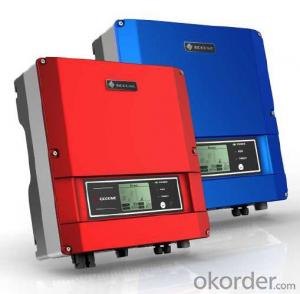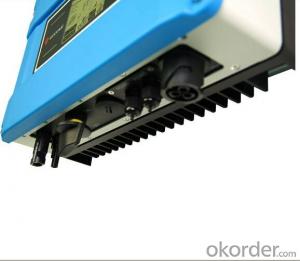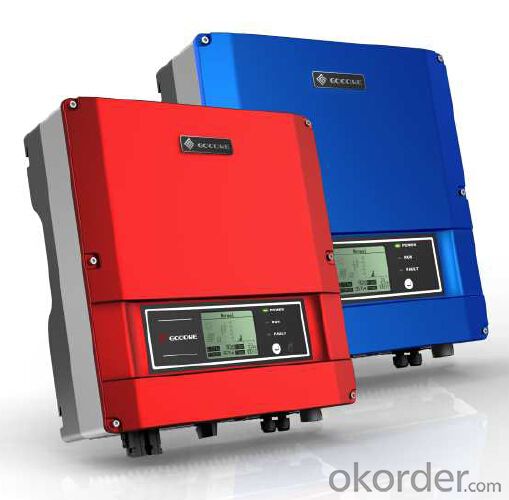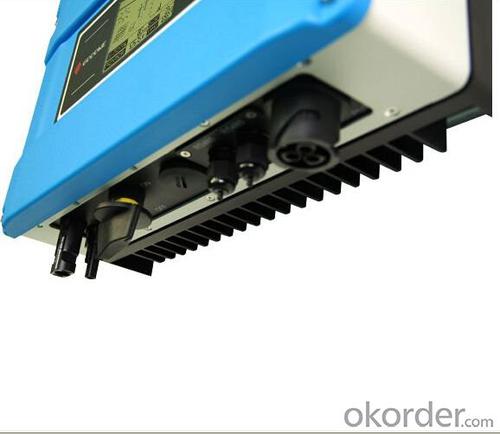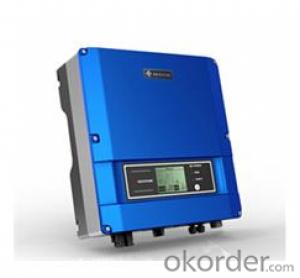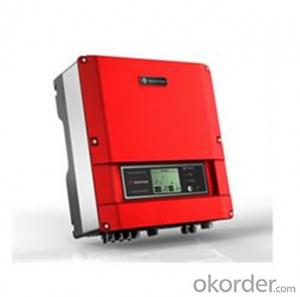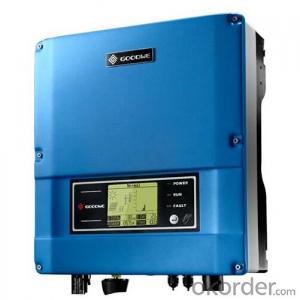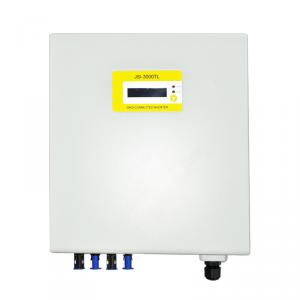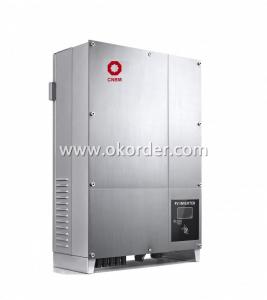Solar Inverter Combo GW3600S-UK
OKorder Service Pledge
Quality Product, Order Online Tracking, Timely Delivery
OKorder Financial Service
Credit Rating, Credit Services, Credit Purchasing
You Might Also Like
GW3600S-UK
The SS series is widely and flexibly used in domestic units because of its wide range of voltage and current inputs.
It features very high conversion efficiency and reliability. SS series provides long-term and stable generating benefits.
The powerful, intelligent, user friendly interface and sleek stylish design make it most suitable for domestic applications.
Datasheet
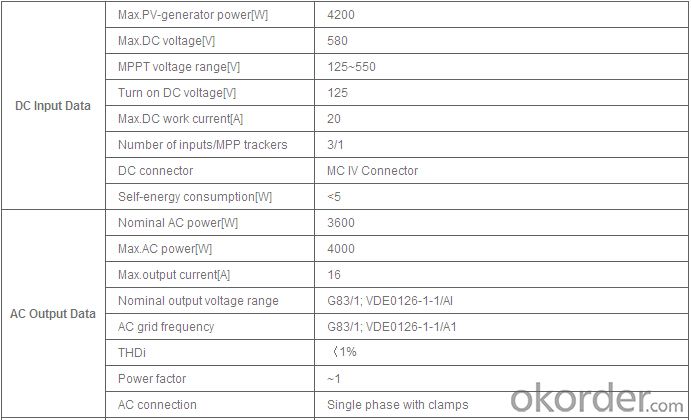
- Q: How efficient are solar inverters?
- Solar inverters are highly efficient, with most modern models achieving efficiency levels of 95% or higher. This means that they can convert a significant amount of the DC power generated by solar panels into usable AC power for homes and businesses, minimizing energy losses and maximizing the overall efficiency of the solar system.
- Q: Can a solar inverter be used in a three-phase power system?
- Yes, a solar inverter can be used in a three-phase power system. In fact, there are specific types of solar inverters designed to work with three-phase power systems. These inverters are capable of converting the DC power generated by solar panels into AC power, which can be seamlessly integrated into the three-phase power grid.
- Q: What is the maximum short-circuit current that a solar inverter can handle?
- The maximum short-circuit current that a solar inverter can handle depends on its design and specifications. However, in general, a solar inverter is designed to handle short-circuit currents ranging from 1.5 to 2 times the rated maximum output current of the inverter.
- Q: What is the maximum output power of a solar inverter?
- The maximum output power of a solar inverter varies depending on the specific model and its capacity. However, typical residential solar inverters have a maximum output power ranging from 1 kilowatt (kW) to 10 kW, while commercial and utility-scale solar inverters can have maximum output powers exceeding several megawatts (MW).
- Q: Can a solar inverter be used with a three-phase power system?
- Yes, a solar inverter can be used with a three-phase power system. In fact, most modern solar inverters are designed to work with both single-phase and three-phase power systems.
- Q: What is the role of a solar inverter in preventing underperformance?
- The role of a solar inverter in preventing underperformance is to convert the direct current (DC) produced by solar panels into alternating current (AC) that can be used to power electrical devices. It ensures optimal performance by tracking the maximum power point of the solar panels, regulating voltage and current levels, and protecting against voltage fluctuations or grid disturbances. This helps to minimize energy losses, enhance system efficiency, and prevent underperformance by ensuring that the solar system operates at its maximum capacity.
- Q: How does a solar inverter handle shade on solar panels?
- A solar inverter handles shade on solar panels by utilizing Maximum Power Point Tracking (MPPT) technology. This technology continuously monitors the solar panels' output and adjusts the voltage and current to maximize energy production. When shade falls on a panel, the MPPT algorithm identifies the affected panel and dynamically adjusts its output to minimize the impact of shade on the overall system performance. This ensures that even partially shaded panels can still contribute to the overall energy generation of the solar installation.
- Q: Are there any noise or vibration concerns associated with solar inverters?
- Yes, there can be noise and vibration concerns associated with solar inverters. However, the extent of these concerns will vary depending on the specific make and model of the inverter. Some inverters may produce a low humming or buzzing noise during operation, which is generally considered normal. However, if the noise becomes excessively loud or disruptive, it may indicate a malfunctioning or poorly installed inverter. Similarly, vibrations can occur in solar inverters, especially if they are not properly secured or mounted. These vibrations can potentially cause additional noise or even lead to damage if left unaddressed. Proper installation and maintenance practices, such as securely fastening the inverter and regularly inspecting for any signs of loose components or abnormal vibrations, can help mitigate these concerns. It is important to note that advancements in technology have led to the development of quieter and more efficient solar inverters. When selecting an inverter for a solar system, it is advisable to research and choose a reputable brand that has a track record of producing inverters with minimal noise and vibration issues. Additionally, consulting with a professional solar installer can provide valuable insights and recommendations to ensure a smooth and quiet operation of the solar inverter.
- Q: What is the role of a solar inverter in maintaining system stability?
- The role of a solar inverter in maintaining system stability is to convert the direct current (DC) produced by solar panels into alternating current (AC) that can be used by household appliances and fed back into the electrical grid. By regulating the voltage and frequency of the AC output, the inverter ensures that the solar system operates within the acceptable range, preventing overloading or damaging the connected devices. Additionally, solar inverters also help to synchronize the solar system with the grid, allowing for smooth integration and optimal energy flow. Overall, the solar inverter plays a crucial role in maintaining the stability and efficiency of the solar power system.
- Q: How does a solar inverter handle voltage fluctuations during grid disturbances?
- A solar inverter handles voltage fluctuations during grid disturbances by continuously monitoring the grid voltage. When a disturbance occurs, such as a sudden drop or increase in voltage, the inverter's control system detects it and adjusts the output voltage accordingly. This allows the inverter to stabilize the voltage and ensure a consistent supply of electricity to the connected solar panels or the grid.
Send your message to us
Solar Inverter Combo GW3600S-UK
OKorder Service Pledge
Quality Product, Order Online Tracking, Timely Delivery
OKorder Financial Service
Credit Rating, Credit Services, Credit Purchasing
Similar products
Hot products
Hot Searches
Related keywords
